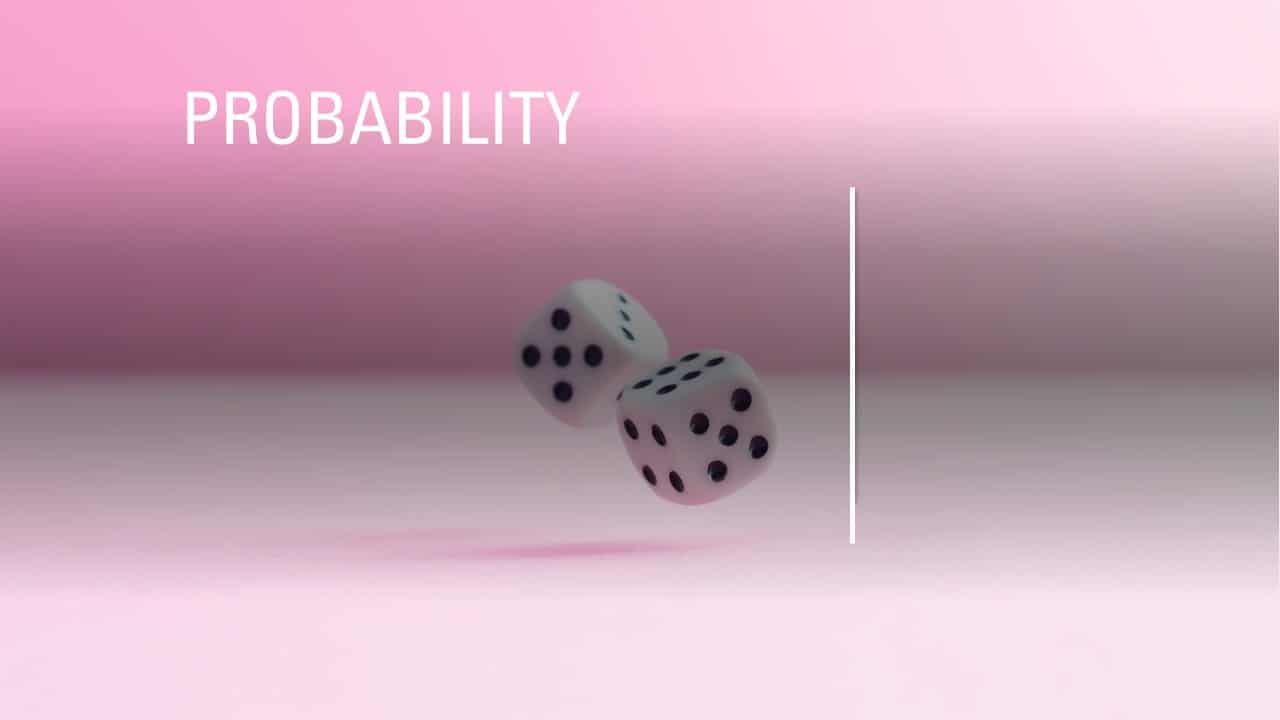STD X – PROBABILITY – NEWTON
About Course
In this Section we will Learn the followinf Lessons of Probability
1. Basic Concepts - Sample Sets, Events
2. Deduction of outcome of rounds of cards, dice, coins
Last Updated:July 24, 2025
0 (0 Ratings)
Share Course
Page Link
Share on social media

Description
Probability is the branch of mathematics concerning numerical descriptions of how likely an event is to occur, or how likely it is that a proposition is true. The probability of an event is a number between 0 and 1, where, roughly speaking, 0 indicates impossibility of the event and 1 indicates certainty.
Probability is the branch of mathematics that describes randomness. The
conflict between probability theory and students’ view of the world is due at
least in part to students’ limited contact with randomness. We must therefore
prepare the way for the study of chance by providing experience with random
behavior early in the mathematics curriculum
RANDOM EXPERIMENTS:
A Random Experiment is an experiment, trial, or observation that can be repeated numerous times under the same conditions. The outcome of an individual random experiment must be independent and identically distributed. It must in no way be affected by any previous outcome and cannot be predicted with certainty
SAMPLE SPACE:
A sample space is a collection or a set of possible outcomes of a random experiment. The sample space is represented using the symbol, “S”. The subset of possible outcomes of an experiment is called events. A sample space may contain a number of outcomes which depends on the experiment
EVENTS:
In probability theory, an event is an outcome or defined collection of outcomes of a random experiment. Since the collection of all possible outcomes to a random experiment is called the sample space, another definiton of event is any subset of a sample space.
RANDOM EXPERIMENTS:
A Random Experiment is an experiment, trial, or observation that can be repeated numerous times under the same conditions. The outcome of an individual random experiment must be independent and identically distributed. It must in no way be affected by any previous outcome and cannot be predicted with certainty
SAMPLE SPACE:
A sample space is a collection or a set of possible outcomes of a random experiment. The sample space is represented using the symbol, “S”. The subset of possible outcomes of an experiment is called events. A sample space may contain a number of outcomes which depends on the experiment
EVENTS:
In probability theory, an event is an outcome or defined collection of outcomes of a random experiment. Since the collection of all possible outcomes to a random experiment is called the sample space, another definiton of event is any subset of a sample space.
What I will learn?
- Many phenomenons of business, economics and social science
- Probability trains you to make decisions in situations which there are observable patterns, but a degree of uncertainty
- Builds statistical conception
- Aids in machine learning
Free
Free
Free access this course
-
LevelIntermediate
-
Total Enrolled3
-
Duration3 hours
-
Last UpdatedJuly 24, 2025
Hi, Welcome back!
Material Includes
- 🔥 Live Interactive classes with in-class doubt solving
- ⭐ Weekly Test and Quiz with instant tracking for progress
- ⚙️ Revision of the course after testing
- 👋 Fortnightly Parents and Tutor interactions
- 🌷 Expert monitoring of student's learning progress
- 👨👩👧👧 Daily communication over call, whatsapp and mail
- 💻3 hours on-demand video
- ✍4 downloadable resources
- ⌛Access for entire Academic Year
- 📱Access on mobile and Desktop
- 📋Assignments and review of the same
- 💡Tests and Correction by Board paper checkers
- 🏅Certificate of completion and Live tracking with Grade book
Course Duration:
3h
Course level:Intermediate
Enrolled:3
About Course
In this Section we will Learn the followinf Lessons of Probability
1. Basic Concepts - Sample Sets, Events
2. Deduction of outcome of rounds of cards, dice, coins
What I will learn?
- Many phenomenons of business, economics and social science
- Probability trains you to make decisions in situations which there are observable patterns, but a degree of uncertainty
- Builds statistical conception
- Aids in machine learning
Course Curriculum
PROBABILITY – 2025
-
X – PROBABILITY – INTRODUCTION AND ALL NUMERICALS
53:47 -
X – PROBABILITY – DISCUSSION OF WORKSHEET SET A
34:44
PROBABILITY
-
PROBABILITY – CORE CONCEPT – INTRODUCTION TO EVENTS AND SAMPLE SPACE
09:22 -
PROBABILITY – SUPPORT MATERIAL – INTRODUCTION
06:00 -
PROBABILITY – PHYSICAL CLASS – INTRODUCTION
23:11 -
PROBABILITY – PHYSICAL CLASS – NUMERICALS PART – I
22:12 -
PROBABILITY – PHYSICAL CLASS – NUMERICALS II
19:50 -
PROBABILITY – SUPPORT MATERIAL – LONG INTRODUCTION
06:00 -
PROBABILITY – SUPPORT MATERIAL – SITUATIONS
05:00 -
PROBABILITY – SUPPORT MATERIAL – EVENTS
06:00 -
PROBABILITY – PHYSICAL CLASS – INTRODCUTION OF PROBABILITY
20:52 -
PROBABILITY – PHYSICAL CLASS – PROBABILITY SUM ON COMPLEMENT EVENTS, DICE, AND BALLS
10:22 -
PROBABILITY – PHYSICAL CLASS – PROBABILITY SUMS ON COINS, LEAP YEAR AND COMPLEMENT PROBABLITY
19:27
Student Ratings & Reviews

No Review Yet

